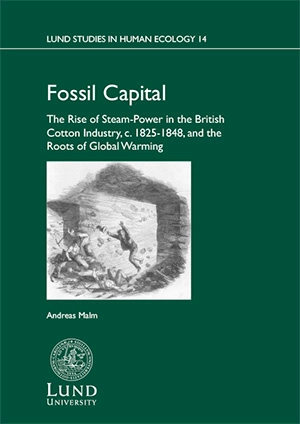

Fossil capital : the rise of steam-power in the British cotton industry, c. 1825-1848, and the roots of global warmingUpplaga 1
- Upplaga: 1a upplagan
- Utgiven: 2014
- ISBN: 9789174738278
- Sidor: 797 st
- Förlag: Media-Tryck
- Format: Inbunden
- Språk: Engelska
Om boken
Åtkomstkoder och digitalt tilläggsmaterial garanteras inte med begagnade böcker
Mer om Fossil capital : the rise of steam-power in the British cotton industry, c. 1825-1848, and the roots of global warming (2014)
I januari 2014 släpptes boken Fossil capital : the rise of steam-power in the British cotton industry, c. 1825-1848, and the roots of global warming skriven av Andreas Malm. Det är den 1a upplagan av kursboken. Den är skriven på engelska och består av 797 sidor djupgående information om miljövård. Förlaget bakom boken är Media-Tryck som har sitt säte i Lund.
Köp boken Fossil capital : the rise of steam-power in the British cotton industry, c. 1825-1848, and the roots of global warming på Studentapan och spara pengar.
Tillhör kategorierna
Referera till Fossil capital : the rise of steam-power in the British cotton industry, c. 1825-1848, and the roots of global warming (Upplaga 1)
Harvard
Oxford
APA
Vancouver



















